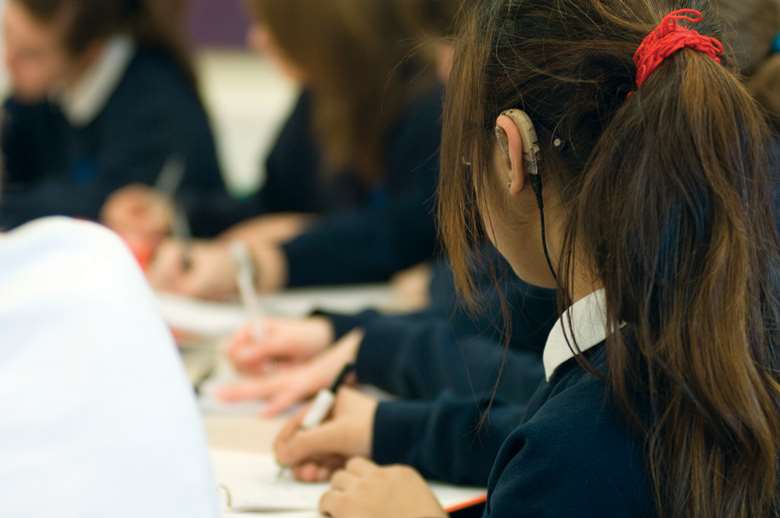Support for deaf children 'in crisis', study finds
Tristan Donovan
Monday, January 8, 2018
Educational support for deaf children is in "complete disarray" with the number of specialist teachers falling 14 per cent since 2011 despite rising numbers of deaf children, a survey has claimed.

Research by the Consortium for Research in Deaf Education (Cride) found that while the number of deaf children in England has risen 31 per cent since 2011 to 45,631 the number of full-time equivalent specialist teachers employed as of January 2017 had fallen by 148 to 914 in the same period.
The decline means that the average specialist teacher supported 61 children in 2017 compared with 49 in 2015, but in some local authorities caseloads were found to be significantly higher. In 15 per cent of local authorities there was just one specialist teacher per 100 deaf students and in one council the average caseload was 253 children.
The consortium's research also found that the school census significantly under-reports the number of deaf children in England, suggesting there are 26,140 deaf children compared with 45,631 identified by Cride in the study.
In addition Cride found that 57 per cent of existing specialist teachers are due to retire within the next 15 years.
The National Deaf Children's Society (NDCS), which supported the survey, said the findings showed a service in "complete disarray".
"The evidence couldn't be clearer," said Susan Daniels, chief executive of the NDCS.
"From every angle and at every turn, a whole generation of deaf children will have their futures decimated if the government doesn't act before it's too late.
"I'm profoundly deaf, and know all too well the challenges of growing up without support. It means struggling to communicate, falling behind at school, failing to achieve your potential.
"Despite deafness not being a learning disability, deaf children fall a whole grade behind their hearing friends at school. This is only going to get worse if the government doesn't intervene."
Daniels has called on the Department for Education to introduce national bursaries for the training of specialist teachers of the deaf and to provide more funding for the education of deaf children.
"The Department for Education needs to get a grip on the mounting funding crisis that is putting so many deaf children's futures at risk," she said.
The Local Government Association said councils take their responsibilities to support deaf children seriously, but need more central government funding.
"We have made it clear for some time now that there must be additional and on-going funding from the government to enable us to support high-needs children and their families," Richard Watts, chair of the Local Government Association's children and young people board, said.
Children's minister Robert Goodwill said: "We want to ensure children and young people with special educational needs, including those who are deaf, continue to get the support that is right for them.
"That is why we have introduced the biggest reforms in a generation with education, health and care plans that are tailored to the needs of the child or young person. We have given councils £223m extra funding to help them introduce these reforms successfully."




